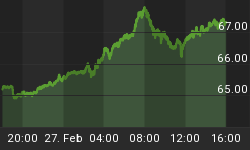Less than a week after a rather successful listing on the New York Stock Exchange (NYSE), Chinese major ride-sharing company DiDi has come under the scrutiny of regulators in its home country.
Didi’s share prices plunged 27% on the US stock market on Tuesday when Chinese regulators ordered app stores there to remove the company from their platforms and forbid DiDi from signing up new users.
In its Securities and Exchange Commission (SEC) filling, the company said it has over 493 million annual active users.
According to the Cyberspace Administration of China (CAC), the country's top internet regulator, the suspension was intended "to prevent national data security risks”. It also says the firm illegally collected the personal data of users.
Earlier this month, Reuters reported that DiDi was being investigated for antitrust concerns and regulators were reportedly looking into the company’s pricing mechanism.
The Wall Street Journal reported on Monday that the company was indeed advised by Beijing to postpone its listing. According to the report, Chinese authorities are concerned that the U.S. would require Didi to disclose its major vendors and suppliers, leaving it vulnerable to security breaches.
That also should have come as no surprise to investors. In its IPO prospectus, DiDi warns about the possibility of scrutiny and penalties from Chinese regulators.
“We cannot assure you that the regulatory authorities will be satisfied with our self-inspection results or that we will not be subject to any penalty with respect to any violations of anti-monopoly, anti-unfair competition, pricing, advertisement, privacy protection, food safety, product quality, tax and other related laws and regulations,” the company said.
On June 30th, Didi listed on the NYSE with a market cap of around $68 billion. The company started trading at about $16.65/share--an almost a 20% jump from its initial public offering price of $14 a share. On Tuesday, shares closed at $12.59.
Raising $4.4 billion from the stock sale, Didi’s IPO was the second-biggest U.S. share offering by a Chinese company, after Alibaba's in 2014.
It should also come as no surprise because China is heavily cracking down on its tech companies, some of which have grown too big, too fast for the Communist Party to control.
Shortly after announcing its Didi investigation, Chinese regulators announced cybersecurity review two more recently the U.S.-listed companies: truck-hailing app Full Truck Alliance and job listing site Boss Zhipin Kanzhun. New users cannot register for these apps during the investigation. Shares in both companies dropped as a result, with Full Truck Alliance shedding nearly 20% and Boss Zhipin, over 9%.
In March, Chinese regulators fined a dozen companies over anti-monopoly violations, including Tencent, Baidu, SoftBank and Tik-Tok parent company ByteDance.
In October, Chinese regulators stepped in to block the share market launch of Alibaba-backed Ant Group. Alibaba’s founder Jack Ma’s fortunes have suffered since he publicly criticized China’s regulatory approach to the finance technology sector, directly challenging the Communist Party.
















